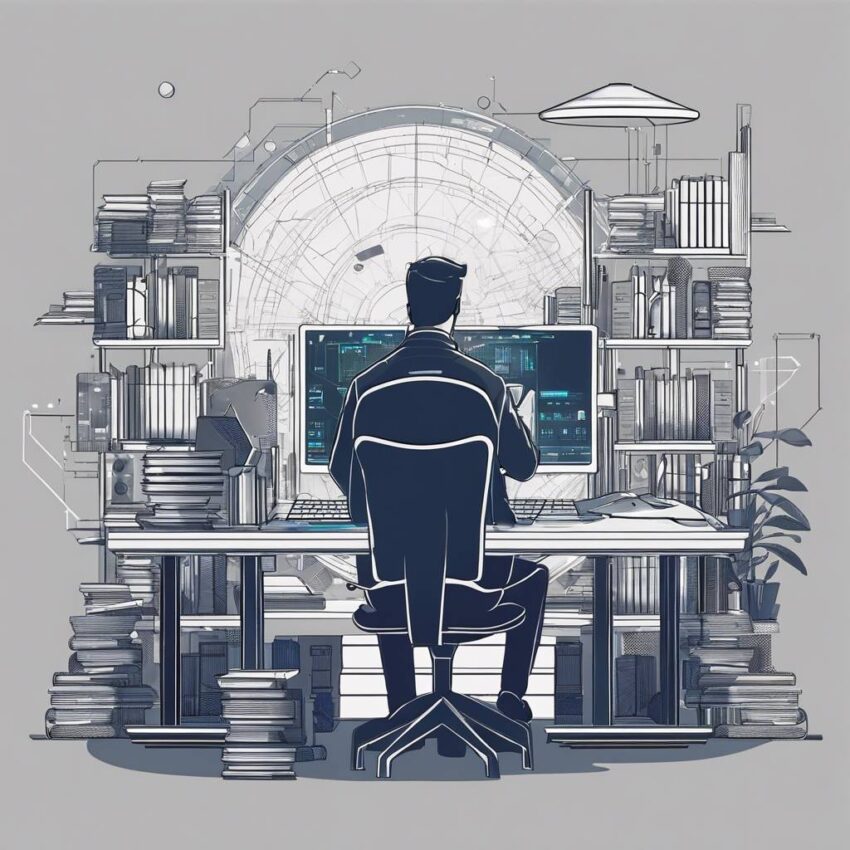The realm of storytelling is evolving, and the modern author faces a paradoxical challenge: to embrace technology as a muse or to defend the hallowed ground of human creativity. Recently, news has emerged about Rie Kudan, an award-winning author whose novel stirred the still waters of the literary world.
For connoisseurs of the written word who revel in our collection—from cozy murder mystery books to Female detective titles—the unfolding dialogue around technology’s role in creative writing is thought-provoking. How might AI influence the enthralling murder mysteries and amateur sleuth adventures we cherish? This is a question worth exploring as both readers and writers.
Imagine, if you will, a future where a Female detective doesn’t just solve the crimes within the pages but is also crafted with insights from an AI, lending a depth to her character that resonates with a reader’s subconscious understanding. This isn’t mere fiction; it’s a possibility that’s knocking at the door of the present.
However, what does this mean for the cozy mystery enthusiasts among us? It signals the potential of new experiences—stories that may blend AI-generated complexity with the comforting warmth of familiar tropes and settings, sustaining the charm of our favorite genre.
The controversy surrounding Kudan’s approach stems from a delicate balance between innovation and tradition. While her use of AI is minimal (a mere 5% of the book), it raises questions about what constitutes originality and creative integrity in a time when a machine can emulate human-like responses.
For our readers and aspiring writers intrigued by Kudan’s creative process, let’s consider how AI might serve as a tool rather than a threat. Imagine leveraging this technology to deepen character development or enhance plot intricacies, without diminishing the author’s unique voice or vision.
To those enticed by the allure of writing their murder thriller books for sale, AI might become a collaborative partner. In brainstorming sessions where the coffee runs cold and ideas turn tepid, a dialogue with an AI could rekindle the spark of inspiration, much like Kudan used it to express complex emotions through her characters.
But what of the amateur sleuth, the hero of our beloved cozy mystery novels? AI’s use raises the stakes—it could potentially craft puzzles so intricate that they challenge even the most astute readers, adding a thrilling layer of complexity to the detective’s quest.
Much of the heated debate unfolds around the legal and ethical implications, especially when considering AI’s reliance on existing copyrighted content to train its systems. This is of definite concern to authors and fans alike, keen to see justice done, not just within the pages of a good book, but in the broader world of literary creation.
We may find ourselves at a crossroads: embracing AI as another brush in the author’s kit, or upholding the sanctity of the typed word as an exclusively human endeavor. What seems incontrovertible is that AI has become a character in the ongoing story of writing itself—one whose role will likely expand and whose impact will be eagerly debated by authors and readers worldwide.
In conclusion, at the heart of every cozy murder mystery or thriller is a promise—a story that transports, challenges, and satisfies. Whether AI augments that promise or detracts from it is a narrative yet unfinished. We embark on this chapter of literary history together, curious witnesses to the crafting of new stories told beneath the expansive and ever-evolving umbrella of human (and perhaps, artificial) imagination. As technology advances, we watch, we read, and we write the unfolding plot with cautious optimism, savoring the mysteries that yet await our amateur sleuths and intrepid detectives, human and AI alike.


